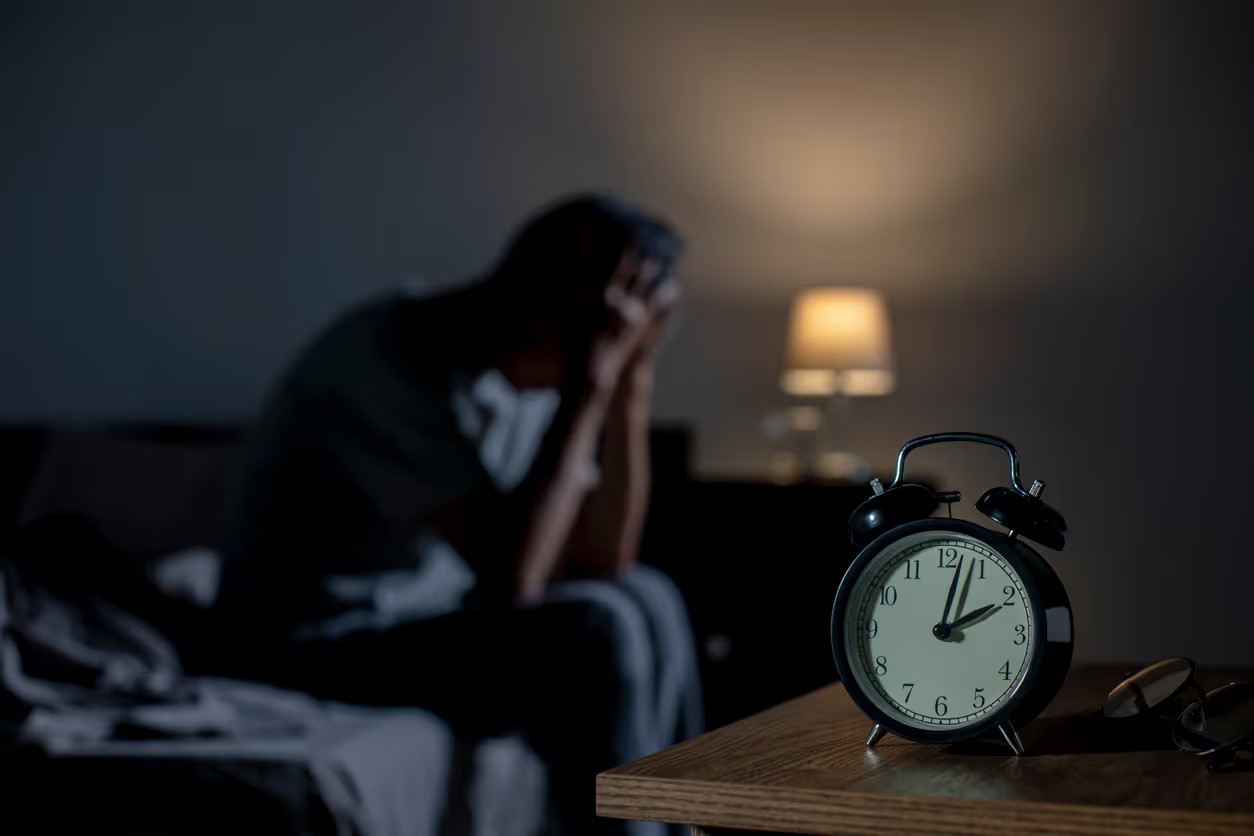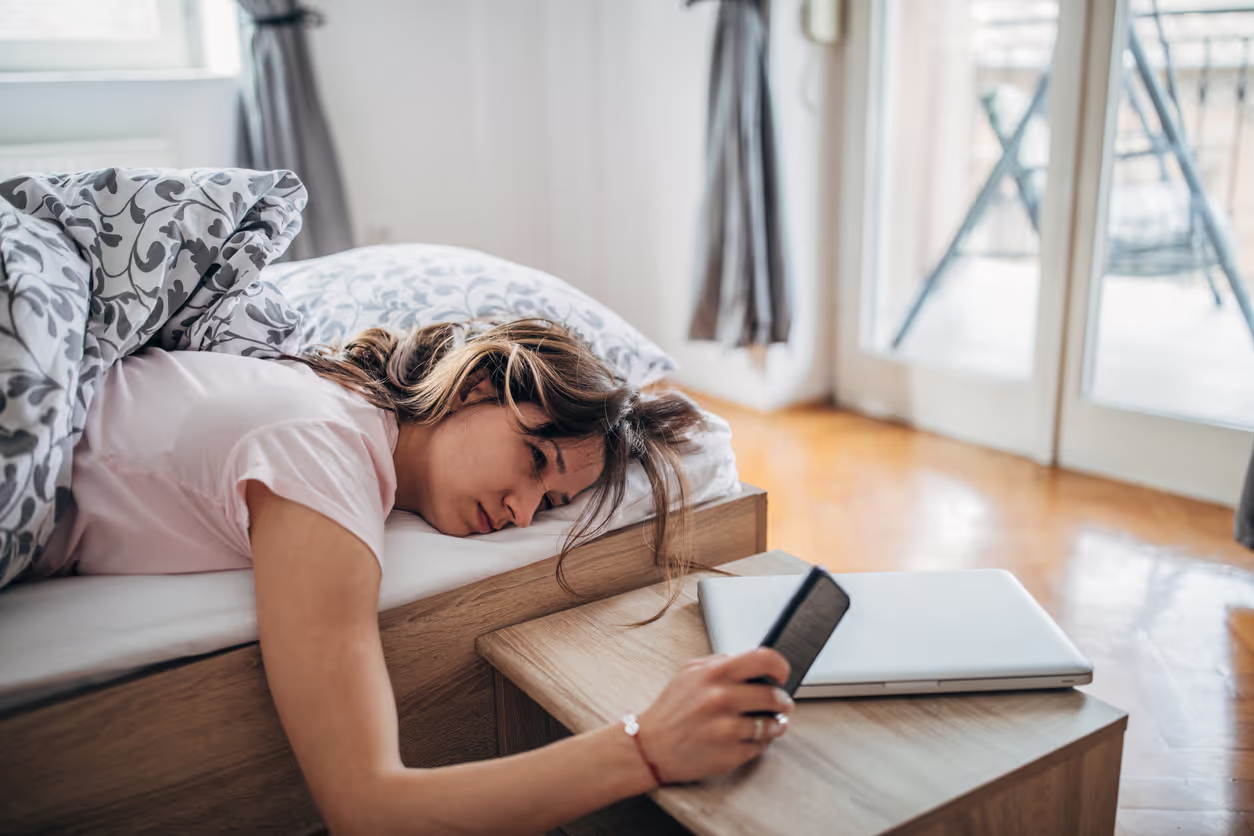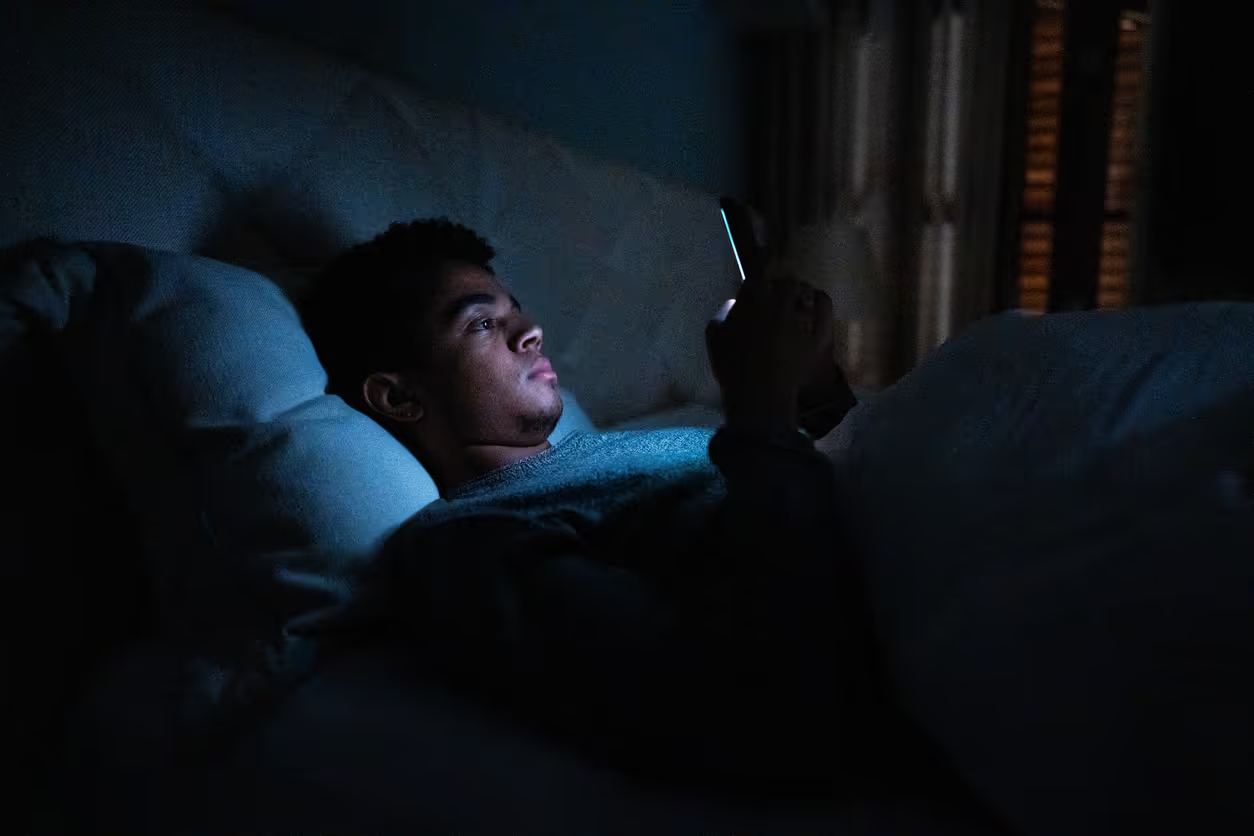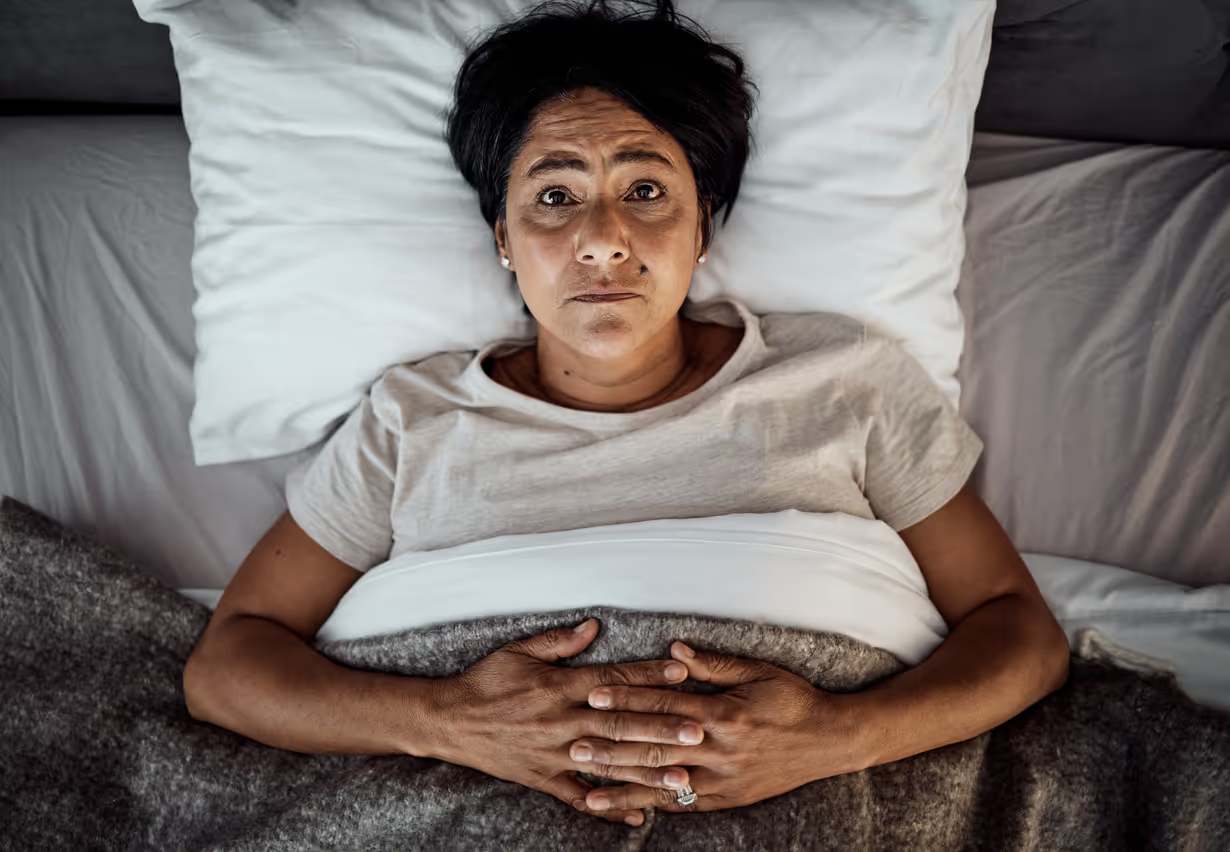Natural ways to fall asleep without medication

Here’s how to fall asleep naturally and wake up refreshed
If you’re tossing and turning at night, it’s tempting to reach for a sleeping pill. But while medications can offer short-term relief, they don’t address the root cause of your sleep struggles—and they may come with unwanted side effects. Fortunately, there are gentle, effective strategies for anyone wondering how to fall asleep naturally.
If you want to know more about your sleep health, try taking our comprehensive free Sleep Assessment and in only a few minutes of answering questions you will receive a free Sleep Health Report.
We have successfully treated insomnia and other sleep disorders for more than 40+ years. Our protocols are proprietary—a direct result of practitioner feedback from thousands of client sessions and training cohorts—meaning more precise, individualized, and trusted outcomes than off-the-shelf CBT‑I. Find out how we can help you achieve lasting improvements to your sleep health, general health and wellbeing. Start your journey here.
Whether you’re looking to improve your sleep long-term or just want to rest better tonight, these natural methods can help you drift off more easily—no pills required.
1. Stick to a consistent sleep schedule
Your body’s internal clock, or circadian rhythm, thrives on routine. Going to bed and waking up at the same time every day—even on weekends—teaches your brain when it’s time to sleep.
Tip: Set a consistent wake-up time first, and your bedtime will begin to fall into place naturally.
2. Create a sleep-friendly bedroom environment
If your bedroom isn’t set up for rest, it’s harder for your body to relax.
Here’s how to fall asleep naturally by optimising your space:
- Keep your room cool (between 15–19°C / 60–67°F)
- Use blackout curtains to block light
- Minimise noise with earplugs or a white noise machine
- Remove electronics and blue light sources
Comfort counts too: A supportive mattress and breathable bedding can make a big difference.
3. Establish a wind-down routine
Your brain needs time to transition from active mode to rest. Develop a calming bedtime ritual that helps signal it’s time to slow down. Try:
- Light stretching or gentle yoga
- Reading (paper books, not screens)
- Journaling or gratitude reflection
- A warm bath or shower
- Herbal teas like chamomile or lemon balm
Consistency is key—doing the same routine each night builds sleep-friendly habits.
4. Limit screen time before bed
Screens emit blue light, which suppresses melatonin—the hormone that helps you fall asleep. Scrolling through your phone or bingeing TV right before bed keeps your mind alert when it should be winding down.
Try this: Power down electronics at least 60 minutes before bed. Use “night mode” if needed earlier in the evening.
5. Watch what you eat and drink
What you consume during the day can impact your night:
- Avoid caffeine after 2 p.m.
- Limit alcohol, which disrupts deep sleep
- Don’t go to bed overly full or hungry
- Stay hydrated—but cut off large fluids 1–2 hours before bed to prevent nighttime wake-ups
6. Calm a busy mind
Mental chatter can be one of the biggest obstacles to falling asleep naturally. Try:
- Deep breathing (like the 4-7-8 technique)
- Mindfulness or guided meditation
- Writing down your worries or to-do list before bed
If your thoughts keep racing: remember that rest still counts, even if sleep takes time.
7. Consider cognitive behavioural techniques
If sleeplessness persists, Cognitive Behavioural Therapy for Insomnia (CBT-I) offers tools to overcome patterns of anxiety, frustration, and poor sleep habits—without relying on medication.
CBT-I is the gold standard for long-term sleep improvement and works especially well for people who want to know how to fall asleep naturally and consistently.
Final thoughts
If you’re struggling to figure out how to fall asleep naturally, know that your body wants to sleep—it just needs the right signals. With small, consistent changes to your environment, habits, and mindset, you can fall asleep more easily and wake up feeling truly rested.
No prescriptions, no side effects—just better sleep, naturally.
Frequently asked questions
What is the best natural way to fall asleep?
The most effective natural methods include a consistent routine, limiting screens before bed, creating a restful environment, and using relaxation techniques like deep breathing.
Can herbal teas really help with sleep?
Yes, herbal teas like chamomile, lemon balm, and valerian root can promote relaxation. They work best when used as part of a calming bedtime routine.
Is CBT-I better than medication for sleep?
For long-term results, CBT-I is considered more effective than medication. It addresses the behavioural and thought patterns behind insomnia.
How long does it take to improve sleep naturally?
Some people notice a difference in a few days, while for others it may take a couple of weeks. The key is consistency.
What if I still can’t fall asleep even with all these tips?
If you’ve tried multiple techniques with little success, it may be time to work with a sleep therapist trained in CBT-I for personalised support.
Book a time with one of our sleep specialists to get your sleep back on track.






